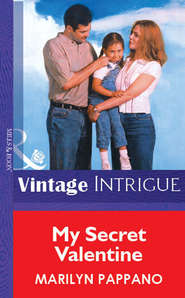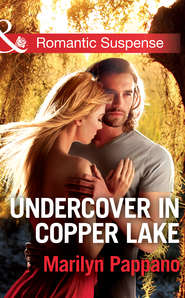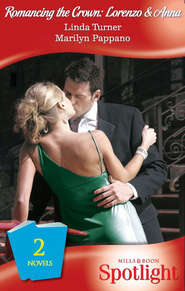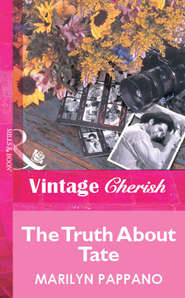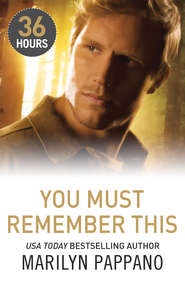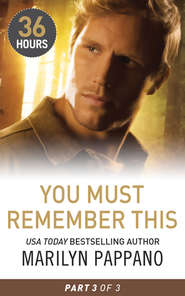По всем вопросам обращайтесь на: info@litportal.ru
(©) 2003-2025.
✖
Criminal Deception
Автор
Год написания книги
2018
Настройки чтения
Размер шрифта
Высота строк
Поля
The location was the simplest of the problems. The Calloways’ mother, Sara, owned an abandoned elementary school, and she was ready to donate it. But there were still the legal issues, the zoning, the licensing, the funding, the staff. But if anyone could handle it, he had faith these people could.
“It all sounds very daunting,” Liz remarked two hours later when she delivered a tray of dirty dishes to the kitchen.
Joe glanced up from the sink where he was washing saucers. “Maybe to mere mortals.”
“And these people aren’t?”
“Oh, they’re mortal enough. They’re just…passionate.”
Instead of murmuring some response, then leaving for more dishes, she picked up a dish cloth from the neat stack on the counter and began drying a fragile cup. “You included?”
“Only about my coffee.”
“And your family.”
He lifted one shoulder in agreement. “You know, passion can be positive or negative.”
“Oh, I’m sure you use your power for good. Getting on board with this bunch. All the recycling stuff. Coaching Little League. Sponsoring needy families at Christmas. Taking in strays.” She searched the cabinets until she found the remaining coffee cups, placed that one inside, then came back for another. “I’ve been talking to people about you.”
He gave her a flat look. “They know what I want them to know.”
“Uh-huh.”
“No one knows what happened in Chicago or about Josh.”
“Oops. I told Natalia that Josh and I used to date.”
He washed a few more dishes before brushing it off. “Natalia doesn’t make small talk.”
“I noticed. Talking with her is like pulling teeth. I had breakfast next to her. I helped her walk those dogs back to your house. I even cleaned up the fuzzy one’s accidents on the way, and she still didn’t say three dozen words to me.” She watched, wondering if he would defend Natalia, certain he wouldn’t betray any of her confidences.
He didn’t surprise her. “You’re lucky it was the fuzzy one. His really are accidents. The brown one, though…she does everything on purpose.”
“She’s just a puppy,” Liz said with a laugh.
“She’s a half-starved, abandoned puppy who thinks she rules the world, particularly any corner of it that I try to claim for my own. She’s clearly familiar with the phrase ‘alpha,’ but she doesn’t seem to know that it’s usually followed by ‘male.’ She tries to mount the male, she stands me down and she’s not afraid to draw blood if you cross her.”
“Wow, and you’ve only had her twenty-four hours. This should be fun.”
With a scowl, he settled another stack of plates into the soapy water.
Liz became aware of the murmuring voices outside the kitchen growing more distant. “Sounds as if everyone’s leaving.”
“You thought I was kidding when I said I do dishes?”
“I thought surely someone would help.”
“Someone is helping.” He gestured to her with a sudsy hand. “Believe me, they pay attention. If you hadn’t stayed, Sophy would have, or Ellie or Jamie. The moment they see a willing victim walk through the door, though, they’re outta here.”
A willing victim—that was her. And Josh. But not Joe. He hadn’t asked for any part of the events that had turned his life upside down. Did he regret it? The shooting, of course. But moving to Copper Lake, starting his own business, making new friends?
“Do you regret it?” For an instant she was surprised that she’d asked the question aloud, but because she couldn’t take back the words, she pushed on. “Moving. Starting over. Moving here.”
He washed the last dish, then started on the glass urns. “It wasn’t in my life plan.”
“But sometimes good comes out of bad. You seem happier here than you were in Chicago.”
“You should have seen me before yesterday,” he said drily. “I was damn near ecstatic.”
She made a face at his back, then turned her attention to the kitchen. It was lovely, looking every one of its two-hundred-plus years but with all the modern conveniences, including the two dishwashers she’d mentioned earlier. She wasn’t surprised Joe had chosen not to use them. The dishes weren’t heavily soiled and could be done just as quickly by hand. Even she probably would have gone that route.
After the paper plates and cups had been prohibited.
“So what’s kept you busy the last two years? Besides Josh, of course. You never seemed to have time for work in Chicago.”
Meaning he’d never seen her unless she was plastered hip-to-thigh to Josh. Except that one night. That was the closest she’d ever come to disaster, and that included waking up to find Josh handcuffing her to the bed and spending two years on the fugitive squad.
“I’ve done a lot of things. I usually work for a while, save some money, then take a break.”
“What kind of things?”
“Wait tables. Tend bar. Clerical stuff.” Josh had thought it funny to tell a few of his buddies that she worked out of their apartment as a phone-sex operator. Joe wouldn’t be nearly as amused by that as those guys had been. Talk dirty to me had become their standard greeting to her.
“Most people who work those kinds of jobs have to keep working. They don’t get the luxury of months off here or there.”
She hadn’t had an entire month off since college, and even then she’d worked part-time jobs. But she smiled sunnily and said, “Most people have obligations.”
“And all you want to do is find Josh.”
Ignoring his comment, she put away the last half dozen cups, laid the damp towels across a rod to dry and leaned against the countertop to watch him rinse the first urn. It was tall, the glass tempered, distorted to give the appearance of age. He didn’t take particular care with it but handled it competently, the way he’d handled the more delicate cups and plates. She knew without asking that he’d never broken a piece of the everyday china, never let a soapy urn slip from his hands, never lost his cool, calm confidence.
Except maybe a little, on an emotional level. When it came to Josh. And her.
If he were anyone else, she would like that she could throw him off his emotional balance.
If she were anyone else, she would take a chance at letting him unbalance her.
He finished the last of the cleanup in silence, then scooped up the urns, one in each arm. “Can you flip the light switch?”
Accommodatingly she followed him through the house, turning off the switches he indicated, picking up the wicker basket from the dining table, securing the double doors behind them.
It was nearly ten o’clock. The buzz of streetlamps was louder than the tree frogs’ song, but only by a notch or so. The scents of the river two blocks away mingled with the closer fragrance of flowers, and music drifted from somewhere nearby, something low and mournful.
Liz took a deep breath and let it out on a sigh. “You made a good choice.” Sensing rather than seeing Joe’s curious look, she went on. “Coming to Copper Lake. Do you ever remember a night this calm in Chicago?”
“Hundreds of them. It’s just a town, too.”
“A great big, sprawling, noisy, crowded town.”






